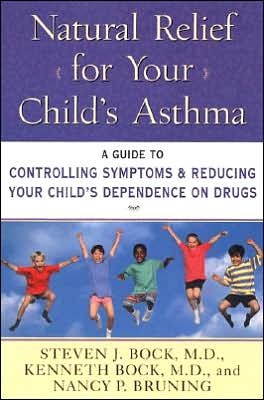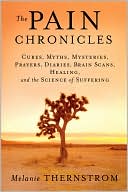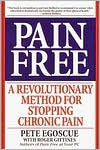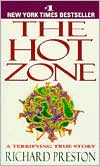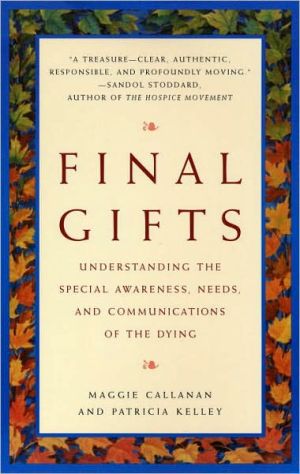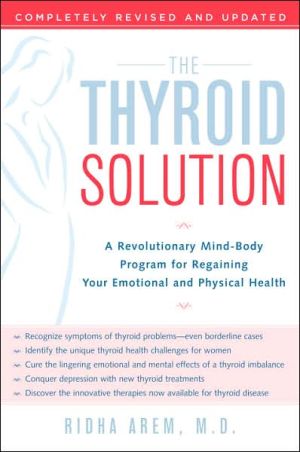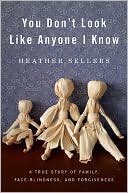Natural Relief for Your Child's Asthma: A Guide to Controlling Symptoms and Reducing Your Child's Dependence on Drugs
A groundbreaking, practical, and holistic approach to treating children with chronic asthma\ From two physicians with fifteen years of experience in treating asthma comes the only book for children with asthma that supplements conventional approaches with effective and proven natural remedies. Parenting a child with asthma is often scary, unpredictable, frustrating, and expensive. Through controlling symptoms, decreasing attacks, and eventually reducing the need for prescription drugs, the...
Search in google:
A groundbreaking, practical, and holistic approach to treating children with chronic asthma From two physicians with fifteen years of experience in treating asthma comes the only book for children with asthma that supplements conventional approaches with effective and proven natural remedies. Parenting a child with asthma is often scary, unpredictable, frustrating, and expensive. Through controlling symptoms, decreasing attacks, and eventually reducing the need for prescription drugs, the Drs. Bock will help you and your child regain control of your lives. This book will show you how to: reduce attacks by dealing with the underlying causes reduce the need for conventional drugs, making them safer to use for emergencies help your child's body heal itself avoid permanent lung damage and encourage healthy new lung tissue to grow minimize emergency room visits, time lost from school, and time lost from work detoxify your environment, minimizing the effects of pollen, dust mites, and mold identify foods that can trigger attacks properly use nutritional supplements build a treatment and prevention program tailored to your child's needsThis medically up-to-date, practical, and supportive book focuses on stopping asthma symptoms and attacks before they start. It is a must-have reference for any parent of a child with asthma.
UNDERSTANDING ASTHMA\ In our experience, the better a parent and child understand asthma and its causes, the better able they are to use our Natural Asthma Control Program to prevent and alleviate symptoms and reduce dependency on medications. Education and understanding are so important to success that, in a sense, you are already beginning the program just by reading this chapter.\ We first explain the most current understanding of the causes of asthma and what happens during a flare-up. We tell you who gets asthma and provide you with a basic understanding of how your child's lungs and immune system differ from that of a child without asthma. We then explain the theory behind what we believe to be the underlying cause of asthma--toxic overload. With this basic foundation of knowledge, you will be better able to communicate with your child's doctor and together devise a treatment plan. You will better understand the following chapter on how medications work. And you will understand the rationale behind each action step in the program and how it affects the whole picture.\ Once you have a basic understanding of asthma, talk to your child about asthma and explain, in terms that he can understand, what asthma is. Then talk to him about the changes you'll be making in order to better control the condition so he can live a more normal life.\ ASTHMA BASICS\ Asthma is a lung disorder that results in recurrent episodes of breathing difficulty. Asthma is not a new illness: Over two thousand years ago the Greeks knew of this condition and coined the word asthma from a Greek word that means "to pant." Indeed, shortness of breath is one of the primarysymptoms of this respiratory disorder, along with coughing, wheezing, and a tight feeling in the chest.\ Although asthma is generally characterized by these telltale symptoms, the actual symptoms and their severity vary from person to person. And they vary within any individual, becoming worse during an asthma episode or flare-up. (We dislike the word "attack," a frightening term which can make people of all ages feel like helpless victims.) Asthma flare-ups may last a few minutes or for days at a time and can even be life threatening. In some children, asthma is mild and only bothers them some of the time. For others, each day is a struggle to breathe. Even in mild cases, it is life disrupting.\ As one adult who had asthma as a child recalls, "Fear wasn't so much the issue--I always felt I could get the air--I just had to work very hard to get it. You need to think about and focus on something that should be effortless and automatic. You learn to limit your activity. You simply sit and concentrate on breathing. It's as if nothing exists in the world but you and your breath."\ If your child has asthma, you may have asthma yourself and know all too well what a flare-up feels like. It's not like the out-of-breath feeling you get from running too fast; in that case, your lungs are working and with time you do catch your breath. Rather, children and adults describe an asthma episode as "trying to breathe through a narrow straw," or "putting a plastic bag over my head and cutting off my breathing." If you don't have asthma, it's hard to imagine what it feels like physically and emotionally to have difficulty breathing. One way to experience what a bad episode feels like is to take a deep breath and then try to take another breath without letting the first breath out.\ Long misunderstood and misdiagnosed, today we know much more about asthma, and that knowledge tells us that asthma is much more complex than originally thought to be. Simply put asthma is a chronic condition of the lungs that causes the airway to become narrow, resulting in less space for the air to flow in and out. The cause seems to be a combination of genetic predisposition and environmental factors that begin to affect a child as early as infancy--and possibly in the womb.\ In a person with asthma, the lungs are unusually sensitive to certain substances called triggers. The lungs overreact and are said to be "twitchy"--much like a nervous, sensitive person who jumps at the slightest noise. This overreaction leads to inflammation, which is the underlying mechanism of asthma.\ Almost anything can trigger asthma, but each child has his own set of triggers. Common triggers include pollens, pet dander, smoke and air pollution, gases, fumes, perfumes, colds and flu, cold air, exercise, and foods. Although there is a psychological component to asthma, the condition is not provoked primarily by emotional or psychological stress.\ Who Gets Asthma?\ Current estimates are that over one hundred million people suffer from this condition worldwide. Asthma affects more than seventeen million Americans; approximately one-third of themfive million-are under the age of sixteen, making it the nation's single leading cause of chronic illness in children. Incredibly, today nearly one out of every fourteen American children aged five to fourteen has asthma. In certain areas, especially big cities, the proportion is even higher. For example, in the Bronx, New York, 25 percent of children (one out of four) have the condition.\ Genes play a role in whether a child will develop asthma. Scientists have long noticed that the tendency towards asthma runs in families-if a child has one parent with asthma, his chances of developing asthma are one in four, or three to six times the risk of other children. If both his parents have asthma, his odds are one in two, or ten times the average risk. A child may also inherit atopy, which is a tendency to develop the types of allergies that trigger asthma. These include the skin condition known as eczema, hay fever, and food allergies. Recently, several genes have been identified that appear to be related to a child's tendency to develop asthma. So, if your child has asthma, it's because he or she was born with a predisposition for it. However, not every child with this genetic predisposition will go on to actually develop asthma. And not every asthmatic child is born to an allergic or asthmatic family. Environmental and lifestyle factors can clearly play a crucial role in the development of this condition.
